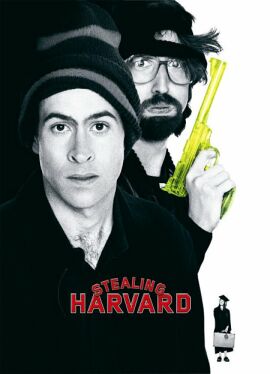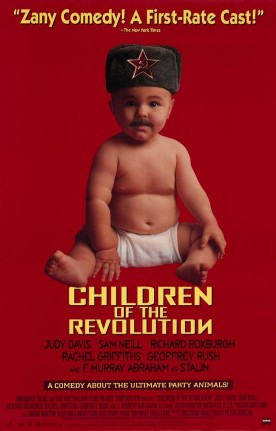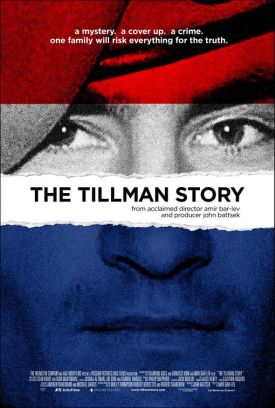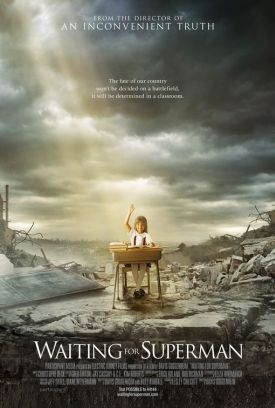Pillow Book, The
The Pillow Book by Peter Greenaway is a typical Greenaway blend of the
bizarre, the disgusting and the boring. Especially the boring. You
wouldn’t think it, would you? That a
man could concentrate so exclusively on weird sexual fetishes (in this case, a
woman’s desire to have her body
written on — and then to write on other bodies), naked bodies, dead bodies,
blackmail, sexual predation and other such subjects and somehow manage to make
the whole thing excruciatingly boring? The film is just over two hours long, but
it seems like two weeks. I don’t know,
maybe people who are fetishists of one kind or another themselves —
or else
who are Japanese calligraphers — would find this picture less boring than I
did, but even they, one supposes, must grow impatient with the increasingly
improbable story on which a succession of pretty, oriental-style pictures are
made to hang.
Nagiko (Vivian Wu) is the daughter of a Japanese writer/calligrapher (the
distinction between the two is almost always blurred here, so that calligraphy
is made to stand for art in a wider sense) played by Ken Ogata and a Chinese
mother. Every year on her birthday when she is a little girl, her father draws
ideograms on her face and back and there is a little ritual chant about how God
made his first clay model of a human being and painted in the eyes and the mouth
and wrote the person’s name — “lest she ever forget it.” Then, if He liked his handiwork, He would sign his own name and so bring it to life.
This ritual is deeply impressive to the young girl, as his her
mother’s reading to her from the
“Pillow
Book” of a 10th century courtesan who
shares the name of Nagiko. This book seems to consist of a list of
“elegant
things” or
“splendid
things” or
“things that make the heart beat
faster.” Using an almost continual
split screen technique, Greenaway is forever illustrating these tropes as they
are mentioned, sometimes working them into the narrative framework and sometimes
leaving them outside it. Later, when she comes to make her own pillow book,
Nagiko includes negative lists—
“things that
irritate”—as well.
She realizes on one of these childhood birthdays, that that day is also the
day that her father’s publisher (Yoshi
Oida) comes to call, calmly buggers the old man, and walks away, leaving a wad
of banknotes behind. This appears to be a matter of blackmail—or so the
daughter presumes. Later she grows up and marries but leaves her husband, an
archery fanatic, after he burns her manuscripts. She moves to Hong Kong, becomes
a model and starts her “search for the
ideal lover-calligrapher.”
In Hong Kong she meets a British translator called Jerome (Ewan McGregor) who
speaks four languages but is not a calligrapher. Instead, he invites her to
write on him. Use my body like the pages of a
book,” he tells her. As the
calligrapher’s brush has already been
compared to a penis, the reversal of sexual roles is clear.
“This is where I begin to do the
writing. I’m going to be the pen, not
just the paper,” says Nagiko. In fact,
she becomes so fond of writing she is persuaded that she ought to publish.
Well what do you think? Turns out that old Jerome is the paper not only for
her but for the very same publisher who spent all those years buggering
her dad! Her idea had been to seduce the old man, but he is obviously not that
way inclined. Well, she decides, “if I
can’t seduce the publisher, perhaps I
could seduce the publisher’s
lover.” She sends her writings to him
on the body of Jerome, their shared lover.
The publisher, who had previously sent her a curt rejection letter, is
suddenly enthralled with Nagiko’s
writings, and orders transcribers to take them down every time Jerome shows up
covered in calligraphy. Symbolically, we are seeing beauty and power competing
on the battleground of sex, but Greenaway
doesn’t appear to have very much to
say on the subject — except that beauty is mostly good and power is mostly bad. Moreover, the preposterousness of the story — and it becomes much,
much more preposterous as it goes on from here — seems to me a lapse
of taste to outweigh and render merely grotesque the beauties, such as they are,
of the film’s photography and
design.
Discover more from James Bowman
Subscribe to get the latest posts to your email.







